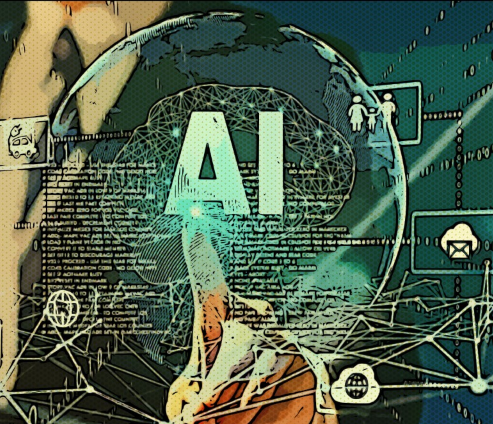Artificial Intelligence or “AI” will become more specialized as it develops, automating repetitive activities, bringing about personalization, and altering how customers, businesses, and marketers utilize the internet. A few predictions for that not-so-distant future are provided below.
According to Insider Intelligence analyst Yoram Wurmser, we have entered a “new era of the internet,” but that doesn’t guarantee that everything that glitters will remain so. This year, global spending on AI will rise to $154 billion, an increase of almost $30 billion year over year. However, it will also weed out underperforming businesses.
He added that this is the wild west right now in AI companies and if a company can demonstrate it has an AI application, it can receive funding right away. Additionally, a lot of these are constructed using somewhat flimsy materials that the upcoming AI generation may easily replace.
A small number of AI models currently offer a wide range of capabilities, but soon, each system will specialize.
There will be a lot of emphasis on building more models that are better aligned with the goals of people who are interacting with them, not on building larger and larger models.
An AI system for marketers, for instance, would be specially tuned to support, track, and react to KPIs like clicks or conversions. Specialized AI will usher in a transition from experimentation to greater efficiency, but it may also bring about employment losses.
AI will replace humans for routine work—unless it doesn’t AI is capable of replacing humans for routine tasks like accumulating data, creating spreadsheets, and making minor edits to social media posts and store listings.
However, businesses may also use AI for creative purposes, leaving people to handle the AI’s support functions. Going forward, AI will accelerate product development and customization.
AI has the ability to use client data to provide highly personalized product suggestions or even create new items just for a single customer. The biggest fear for AI consumers will be the uncomfortable feeling of predictive analytics. When a software predicts emotional desires based on past patterns and behavior, it can be creepy. New homes are already seeing adaptation to help the home operate more efficiently or prevent issues that normally might not be seen by a homeowner.
Big Tech now enjoys minimal consumer trust. People can begin to assume that all content has been influenced by AI as a result of an increase in AI, further eroding trust.
Or there’s a potential that buyers won’t even notice low-quality AI stuff. As a consumer, you won’t even necessarily notice if there is more information available since you won’t have the time to pay attention to it.
OpenAI’s ChatGPT is very clear in their terms and conditions that they own all of the data a user gives it. That means that businesses will have to be cautious about sharing customer information for fear of privacy breaches.
It is also well known that ChatGPT makes up information to fill gaps sometimes. Proofreading is a must. For example, if a Realtor is using the AI for a property description, the system may not recognize Fair Housing violations in the information it gives back. Therefore, a Realtor could be held liable if he or she just copies and pastes information.
The final questions about AI is about plagiarism. The old adage of, “If you copy one person, it is plagiarism, if you copy multiple people it is research” will be okay early on. The US Copyright Department said in a press release in March of 2023, they would not deal with complaints about AI and possible plagiarism until they could look further into the possible illegal activity. Remember that if you post a blog using AI, it may need to be removed later for fear of copyright infringement.
Because the industry is evolving so quickly, it might be challenging to make reliable forecasts about AI’s role in marketing and retail. Thus, Auto-GPT, in which AI operates autonomously without or with minimal human interaction, will change how people use AI. Auto-GPT might be able to produce intermediate tasks in addition to business plans, or it might compile a list of image-generation prompts before actually producing the photos.

